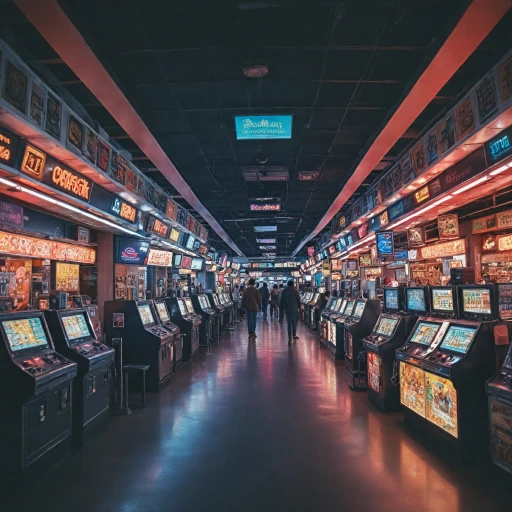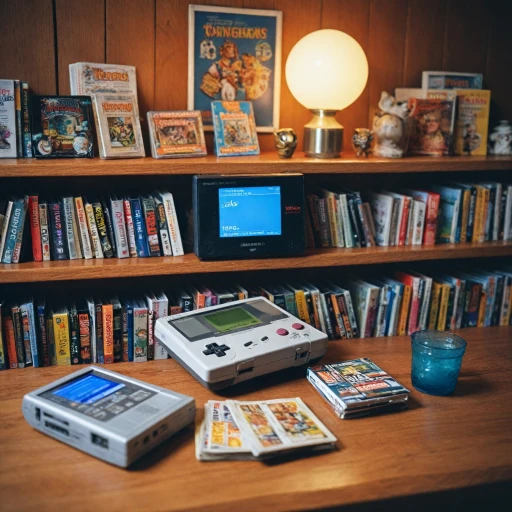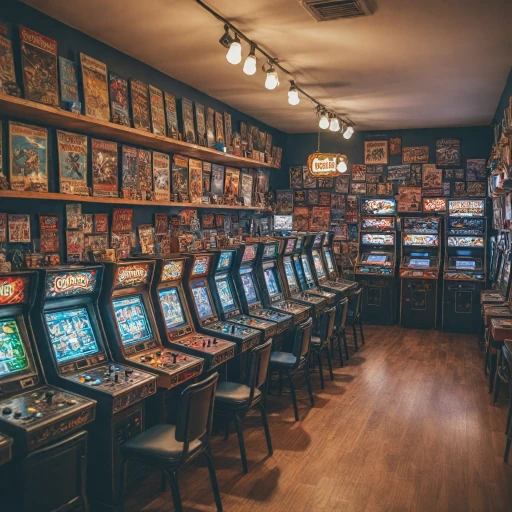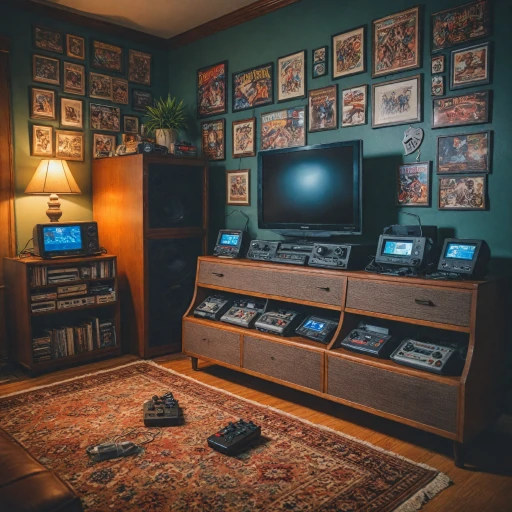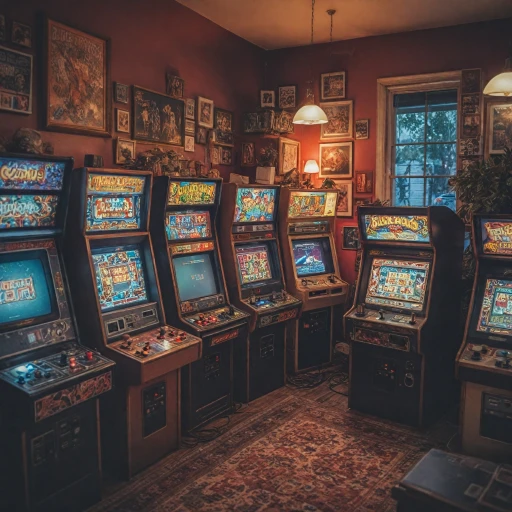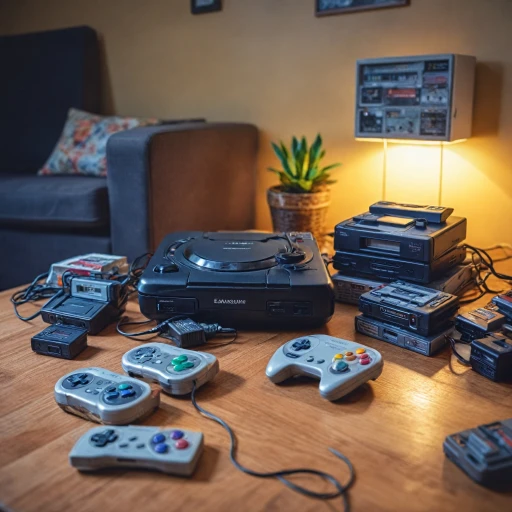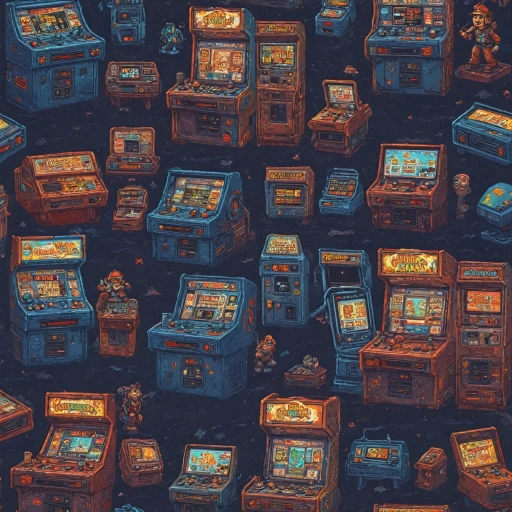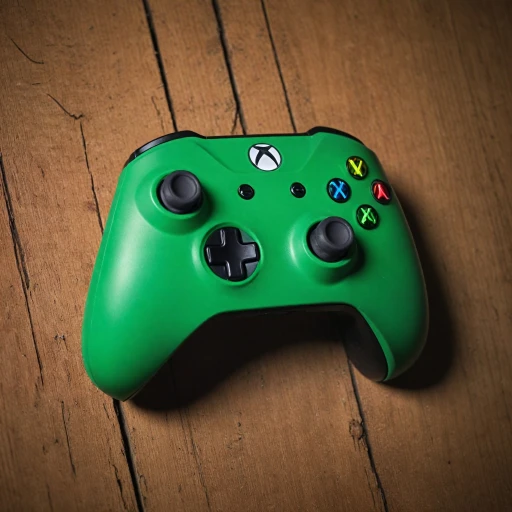
The Evolution of Gaming Consoles
The Journey from Humble Beginnings to Technological Marvels
The evolution of gaming consoles has been nothing short of remarkable. From the pixelated charm of early arcade games like "Pac-Man" and "Space Invaders" to the nuanced graphics of the latest "Nintendo Switch" titles, the journey of gaming hardware is a testament to technological progress. In the early days, arcade consoles dominated the scene. Players would flock to shops and arcade halls to experience the thrill of action and adventure in genres as diverse as role-playing and time-based strategy games. As technology advanced, the experience previously exclusive to public spaces could be brought into homes. The 1980s and 1990s were crucial decades in this progression. "Nintendo" and "Sega" emerged as industry leaders, offering iconic consoles like the "NES" and "Sega Genesis". These platforms introduced timeless classics such as "Super Mario", "The Legend of Zelda", "Donkey Kong", and "Final Fantasy". Fans embraced these games and their characters, and they remain beloved today. With each new console release, gameplay complexity, and innovation expanded. Graphics improved, storytelling deepened, and characters became more iconic. The popularity of home-based systems soared, and games transitioned from simple formats to intricate adventures with real-time player interaction. As we appreciate the past, it's fascinating to consider how these early innovations laid the groundwork for the multifunctional consoles we know today. Modern consoles can now emulate and preserve these retro games, keeping the charm of "retro gaming" alive. This exploration into the legacy of the Sega Saturn console provides further insights into the transformative times of the gaming console evolution.Iconic Consoles That Defined an Era
Defining Moments in Gaming History
The retro gaming world is teeming with iconic consoles that have left their indelible mark on the history of video games. These consoles did not just define periods; they provided a tapestry of memories for gamers worldwide. Among the most celebrated is the Nintendo Entertainment System (NES), introduced in the 1980s. It wasn't just a game console; it was a gateway to countless adventures, from the labyrinthine challenges of Legend Zelda to the epic journey of Super Mario. The NES transformed living rooms into arcades, bringing the action right to the players' couches. Another legendary piece of hardware is the Sega Genesis. Known for its speedier processor and a library of action-packed games, this console offered something unique with its innovative gameplay styles and unmatched graphics for its time. This period's influence can be explored further in discussions about the legacy of the Sega Saturn console. One cannot overlook the impact of arcade games that made their way into homes. Icons like Pac-Man and Space Invaders, once cornerstones of brick-and-mortar arcades, found a second life on these home consoles, embracing a new era of gaming accessibility. Arguably, the eclectic mix of games available during this time also introduced diverse genres to wider audiences. From real-time strategy games to role-playing epics like Final Fantasy, gamers had access to a vast world of interactive storytelling. Without a doubt, the Game Boy deserves mention as well. This portable console revolutionized gaming on-the-go, making it possible to play gems like Donkey Kong anywhere, anytime. In this digital renaissance, players continually return to these retro gems for both nostalgia and the sheer joy of timeless gameplay. Each console from this era unlocked new dimensions of play, setting the stage for the dynamic world of gaming that continues to evolve today.The Appeal of Old Video Games
The Timeless Allure of Classic Games
There's something uniquely captivating about delving into the world of classic video games that sets them apart from their modern counterparts. The distinct charm of retro gaming brings players back to a simpler time, where games like Pac-Man, Space Invaders, and Donkey Kong defined the arcade gaming experience. These timeless titles, though simplistic in graphics, offered a level of challenge and enjoyment that continues to capture the hearts of gaming enthusiasts.
From action-packed adventures with Super Mario and the ICONIC role-playing escapades of Legend of Zelda, these games established compelling worlds with limited resources. Each level was thoughtfully crafted to maximize engagement despite technological limitations of the time. Such innovation has allowed these games to stand the test of time, garnering appreciation even among younger generations exploring these classics on platforms like the Nintendo Switch.
Why Old Video Games Still Resonate
- Simplicity and Accessibility: Without intricate commands or complex narratives, these retro games are easily accessible, inviting players to dive into rapid action or strategic gameplay without lengthy tutorials.
- Nostalgia: Many gamers find comfort revisiting beloved titles. These games evoke cherished memories and a sense of nostalgia, which can enhance the overall enjoyment and sense of community among gamers.
- Enduring Gameplay: With classic mechanics like the action-adventure pursuits of Super Mario or the strategy of Final Fantasy, these video games offer engaging entertainment without requiring cutting-edge hardware.
Additionally, the rise of online marketplaces and community forums has made collecting and sharing these experiences even more exciting. Whether through seeking titles on retro game shops or exploring portable gaming experiences, the demand for older, iconic games remains strong. These titles are not just pieces of entertainment but milestones representing significant chapters in gaming history, making them a cherished part of any gamer's collection."
Collecting and Preserving Retro Consoles
Preserving Classic Consoles for Future Generations
In an era where new technology seems to be at our fingertips every day, there remains a loyal community dedicated to collecting and preserving retro gaming consoles. This passion isn't just about nostalgia or the thrill of finding a rare, vintage Nintendo or Sega system. It's about understanding the evolution of video games and honoring the devices that paved the way for consoles like the Nintendo Switch.
Many collectors dedicate extensive time and resources to finding, restoring, and maintaining these old treasures. Shops and online communities offer valuable advice and guidance on the best practices for keeping consoles in working order. From cleaning cartridges to repairing damaged hardware, enthusiasts are committed to ensuring these consoles can still provide the same magical experience they did all those years ago.
Another key aspect of retro console collecting is the hunt for iconic titles that defined the genres we love today. Whether it’s the groundbreaking action adventures like "The Legend of Zelda," intense platformers like "Super Mario," or timeless arcade classics such as "Space Invaders," there's a shared joy in playing these games on their original systems. Titles like "Final Fantasy," "Donkey Kong," and "Pac-Man" not only introduced players to new worlds of adventure and imagination but also established the foundation for standard game mechanics still used in modern titles.
The comments and discussions surrounding retro gaming often touch on the varied experiences these games offer compared to contemporary options, including the tactile satisfaction of using the original controllers and, in some cases, the unique graphical charm of outdated technology. Playing these games isn't just about the action on screen; it's about participating in a piece of history, engaging with the raw, unfiltered creativity that inspired generations of game design.
For many, collecting retro consoles is not merely a hobby, but a way to share these experiences with a new generation who may only know Mario from the latest online adventure or a role-playing game from its more recent iteration. It’s an invitation to sit down, plug in a classic NES, and experience firsthand why these consoles left such a lasting impression on the world of gaming.
Modern Emulation and Accessibility
The Wonders of Technology Enhancing Retro Experiences
In recent years, the digital landscape has made retro gaming more accessible than ever. Modern emulation technology has allowed enthusiasts to revisit beloved classics, bringing iconic titles like Super Mario, The Legend of Zelda, and Donkey Kong into contemporary homes. It's heartening to see how these advancements bridge the gap between past and present, offering a seamless blend of nostalgia and convenience.
Arguably, the nineties was a period that defined an entire generation of gamers with systems like the NES and Sega's line of consoles. Today, reimagining these moments is as simple as a few clicks thanks to various emulation platforms. The transition from cartridge-based systems to digital platforms has significantly widened access to these beloved games.
Platforms Bringing Retro Games to Life
One of the outstanding aspects is how current consoles, such as the Nintendo Switch, embrace the past. With platforms that offer a myriad of retro games, players can indulge in timeless adventures, from the action-packed worlds of Final Fantasy and Space Invaders to the strategic depth of real-time strategy titles.
Moreover, sharing these gaming experiences online has become integral to player communities. With forums and dedicated spaces for retro aficionados, people can share strategies, comments, and even engage in multiplayer sessions with classics like PAC-MAN or arcade games from years ago.
Preserving the Past While Looking Forward
It's worth noting that as players relish these blasts from the past, there's a concerted effort to preserve the essence of retro gaming. Whether it's through collecting rare consoles or engaging in communities focused on the preservation of such treasures, the charm of retro gaming persists with a renewed vigor.
The fusion of modern emulation with timeless classics speaks volumes about the enduring appeal of these video games. This blend showcases the continued relevance and lasting impact of the games that built the industry into what it is today.



